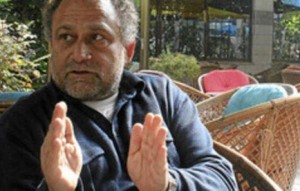 “half of y’all won’t make it”
“half of y’all won’t make it”
–Jay-Z and Alicia Keys, “Empire State of Mind”
In the face of creeping disfranchisement, unbridled corporate power, growing poverty, an expanding police state, 2.3 million people in cages, vigilantes and cops taking our children’s lives, a presidential policy of assassination-by-drone, global environmental disaster, attacks on reproductive rights, a war on trade unions, a tidal wave of foreclosures, and entrenched racism camouflaged beneath a post-racial myth, why do we care if Harry Belafonte and Shawn “Jay-Z” Carter have “beef”? Do social movements need Mr. Carter’s money or power or influence? Is justice a matter of charity or wealth? So what if Carter believes—as he retorted in response to Belafonte’s skewering of navel-gazing black celebrities—“my presence is charity”?
Let me say at the outset that I am not interested in spats between celebrities or on expending precious energy on conflict-resolution for the Negro one-percent. Anyone familiar with the dictionary definition of “charity” will find the statement ridiculous, just as anyone familiar with Jay-Z’s philanthropic work will wonder why he would say such a thing. He has been a high-profile giver: he and his mother started the John Carter Foundation ten years ago to help fund college-bound at-risk youth; he tossed a million dollars into the Red Cross’s coffers after Hurricane Katrina; he is a partner in the Global Citizen Tickets Initiative—the brainchild of the Global Poverty Project meant to hip pop music fans to world poverty and compel them to act (via sharing on social media, writing elected officials, donating money) while dropping big bucks on concert tickets. And there was “The Diary of Jay-Z: Water For Life,” the 2006 MTV documentary that raised awareness of Africa’s water crisis. Carter met with policy makers, advocates, and poor, water-starved families in Angola and South Africa, and committed to building 1,000 clean water pumps in Africa. Two years later, the United Nations honored his work with a special humanitarian award.
Does this mean Belafonte was wrong? Or Jay misspoke? Or that we need to place ‘Hova’s’ philanthropy and activism on a ledger against Bruce Springsteen’s, the celebrity Belafonte deemed more socially responsible? What does any of this do to advance a truly progressive agenda?
Focusing on the personal obscures what is really at stake: ideas, ideology, the nature of change, the realities of power, and the evisceration of our critical faculties under the veil of corporate celebrity culture. I use corporate here not as an epithet but as an expression of the structural dimensions of how celebrity is made and its ideological function. Celebrities endorse products; like any commodity, they have become “brands.” They may say and do very nice, uplifting, philanthropic things, but rarely do celebrities stand against the policies and ideas of neoliberalism and U. S. Empire. More often than not, they embody the ideology of neoliberalism (valuing wealth, free markets, privatization over human needs) and Empire (U.S. military and economic dominance over the world).
Words and deeds of high-profile individuals do matter, but too often we pay attention to the wrong words and the wrong deeds. Returning to Mr. Carter’s reply, it is what he says immediately after his charity line that should concern us. Applying his claim—that greatness alone is in-and-of itself a magnanimous gift—to the President, he adds: “Whether [Obama] does anything, the hope that he provides for a nation, and outside of America is enough. Just being who he is. You’re the first black president. If he speaks on any issue or anything he should be left alone.”
That Mr. Carter believes this is less important than the fact that his “brand” promotes it, and I’d venture to say that most African-Americans fundamentally accept its logic. The mere fact that Obama is the first black president, so the argument goes, should grant him immunity from criticism. The relentless attacks on Cornel West, Tavis Smiley, and others for their relentless critique of the Obama administration conform to this logic. Rather than address their specific criticisms on their own terms, detractors dismiss West and Smiley by repeating the well-worn claim that they are motivated by personal slights or potential monetary gain, blame an intransigent right-wing Congress for Obama’s worst policies (foreign and domestic), respond to criticisms with a laundry list of accomplishments, or simply assert that critics of the president are “haters,” race traitors, who fail to appreciate the historic significance of a black man in the White House.
The idea that the President transcends all worldly criticism corresponds with a different sort of “Empire State of Mind.” Empires dating back to Egypt, Rome, Ancient China and Japan have depended on an “imperial cult,” the notion that an emperor is to be worshipped as a messiah or a demigod. Even modern empires, like the U.S., often fall back on hero worship, adoration of strength and might over the rule of law and justice. This is why cops and soldiers are “heroes” and dissenters and the civil disobedient are troublemakers or enemies of the state. The cult of Obama has the added dimension of being the tale of a singular black man overcoming historic obstacles, breaking the color line and achieving the highest office in the land. Such representation masks the fact that it wasn’t his achievements but our achievements, our tireless mobilization on his behalf, the work of nameless millions who elected him to office to serve the people. We have an obligation in a democracy to hold government accountable to the rule of law (that includes international law) and to protect the interests of the whole of the people.
And what about deeds? I find it remarkable that Jay-Z’s four little words could set off global outrage, but revelations that Rocawear, the Hip Hop apparel company he co-founded with producer Damon Dash, employed sweatshop labor barely registered a blip in the black blogosphere. Ten years ago, anti-sweatshop activists revealed that Rocawear, along with Sean Combs’s “Sean John” label, contracted with Southeast Textiles International S. A. (SETISA) in Choloma, Honduras, to manufacture their very expensive clothing lines. SETISA sewers earned between 75 and 98 cents an hour, worked 11 to 12 hour shifts with no overtime, and had excessive production goals (T-shirt makers, for example, had to complete a little over 18 shirts per hour, and they could not leave until they met their quota). Talking was prohibited. Permission from a supervisor was required for bathroom breaks. Drinking water (found to be contaminated with fecal matter) was rationed. All employees were subjected to body searches, and female employees were required to take pregnancy tests. Those who attempted to unionize were fired. After refuting reports, Combs was ultimately pressured into making some improvements in factory conditions, but Carter had little to say and never issued a public apology. In 2007, Carter sold the rights to Rocawear to Iconix Brand Group for the princely sum of $204 million, while retaining his stake in the company and overseeing marketing, licensing, and product development.
If we praise celebrities for wealth accumulation, then Rocawear is an unmitigated success. Jay-Z has done what most successful entrepreneurs do in the age of neoliberalism—seized upon the massively oppressive labor conditions produced by free trade policies, the creation of U.S.-backed free trade zones, deregulation, and the weakening of international labor standards.
And why not? Capitalists want to “live life colossal.” Milton Friedman Baby! Then again, who wants to tweet that their favorite celebrity made millions off of sweated labor, thereby perpetuating global poverty? Knowing fans tend to look the other way; the vast majority of acolytes are kept blissfully ignorant by the corporate image machine.
Enter MTV and the release of “The Diary of Jay-Z: Water For Life,” following on the heels of Rocawear’s sweatshop revelations. I doubt it was a cynical ploy to defuse the controversy, mainly because for the Jay-Z consumer there was no controversy. His brand escaped pretty much unscathed. And yet, while Carter’s concern for the 1.2 billion people without access to clean water is genuine, the film’s explanation of the crisis is problematic. “Water for Life” blames civil war and the disruptions of military violence, urbanization, and poverty, and suggests that philanthropy and visionary entrepreneurs can solve the problem by providing clean water pumps and digging wells. How so many Africans became “poor” in the first place, the legacy of colonialism, not to mention water privatization, don’t really figure in the story. When asked about privatization at a U.N. press conference upon the film’s release, Carter appeared oblivious: “that’s just bureaucracy, I don’t have any expertise in that.” He didn’t know if water was being privatized, but he did notice that in the houses he visited, the families “paid fifty cents a bucket for [water].” He then went on to praise his long-time sponsor Coca-Cola for providing money for play pumps in Southern Africa (small manual merry-go-rounds that pump water as children play). At the time, Coke was targeted by protestors in India and Colombia for depleting scarce local water sources for its bottling plants, and releasing toxic waste water into the ground, damaging farm land and leaving residents with a variety of skin and stomach ailments.
To be clear, I am in no way criticizing Shawn Carter for lacking a sophisticated critique of the ravages of privatization. To expect as much is unfair, unrealistic, and beside the point. Most Americans share his view; neoliberal logic normalizing Empire and its exploitative practices is today’s common sense. However, it is the use of his brand to sell this new common sense, to promote corporate interests and obscure the real sources of inequality, that matter.
Alicia Keys – Home Wrecker?
Ironically, it has been the Alicia Keys brand–the angelic half of the Empire State duo—that has shown a particularly egregious disregard for human rights. On July 4th of this year, Keys performed in Tel Aviv, Israel, in spite of urgent pleas by Palestinian and Israeli activists, human rights advocates, and nearly 16,000 petitioners from around the world, to respect the global boycott of Israel for its illegal occupation of the West Bank and apartheid policies toward Palestinians. Personal appeals from writer Alice Walker and Archbishop Desmond Tutu did nothing to dissuade Keys or her handlers from accepting the invitation. In response, she issued the following statement: “I look forward to my first visit to Israel. Music is a universal language that is meant to unify audiences in peace and love, and that is the spirit of our show.”
The statement is as ridiculous and ingenuous as “My presence is charity.” How can music unify an audience when policies of occupation and apartheid exclude the vast majority of Palestinians? What good are homilies about love and peace in a land where Palestinians in the Occupied Territories are prohibited from even entering Israel, contained by a massive concrete wall, economically starved, and living under military occupation? Where thousands of Palestinians are locked away in Israeli prisons—including hundreds of minors convicted of throwing rocks at tanks and well-armed soldiers and settlers? Where Israel continues to build Jewish settlements in the West Bank, displacing Palestinians, demolishing their homes, uprooting their olive trees—all in violation of international law. Where, on more than one occasion, Palestinian mothers were forced to give birth on the side of the road or watch their severely ill children die in their arms for want of emergency care because they were held up at an Israeli checkpoint. Where the apartheid wall has turned a fifteen-minute walk to school into a two-hour ordeal for thousands of young children. For young Palestinians living in Israel who are not incarcerated, few could afford the $62.00 ticket to hear Keys. Nearly half of all Palestinians in Israel live in poverty. Most are legally excluded from residing in non-Arab communities based on their “social unsuitability,” attend severely underfunded schools, and are denied government employment.
The point of the non-violent global boycott, of course, is to apply economic pressure on Israel to change these policies: to end the occupation, dismantle the “apartheid” wall which violates international law; recognize the fundamental rights of all Palestinian-Arab citizens of Israel and other non-Jews for full equality, and grant the right to return, as stipulated by United Nations resolution 194. The boycott is an act of tough love to achieve justice through peaceful means. Alicia Keys’ concert, on the other hand, served to legitimize and normalize Israeli policies of violence, occupation, incarceration, segregation, and settlement. Keys and her handlers knew this, as they were inundated with materials from organizations supporting the Boycott, Divestment, and Sanctions movement (BDS)–including the U.S. Campaign to End the Israeli Occupation, Jewish Voice for Peace, and Boycott from Within. Activists hoped that Keys’ role as lead supporter of “Keep a Child Alive,” an NGO dedicated to helping HIV-infected children in Africa and India, would make her more sensitive to the lives of Palestinian children. The organization’s Chief Executive Officer, Peter Twyman, and co-founder Leigh Blake received pages upon pages of material documenting the daily abuses of children at the hands of the Israeli military and settlers.
Rifat Kassis of Defence for Children International Palestine, and Shatha Odeh of the Health Work Committees, submitted a powerful letter appealing to Keys to cancel, outlining in devastating detail how the occupation and Israeli policies have affected Palestinian children. They reveal that since 2003, some 8,000 Palestinian children as young as 12 have been arrested, interrogated (often without access to parents and legal counsel), and detained by the Israeli army and prosecuted in military courts—some held in solitary confinement. (With a 98% conviction rate, it is no surprise that confessions obtained by coercion are rarely thrown out by military judges.) They discuss how military checkpoints and the apartheid wall have become barriers to basic and emergency medical care. And they point out that the blockade of Gaza “is the single greatest contributor to the endemic and long-lasting poverty, deterioration of health care, infant mortality, disease, chronic malnutrition and preventable deaths of children. Palestinian children in Gaza lack access to clean water, health care and are scarred by repeated Israeli military offensives and the constant fear of impending attacks.”
Keys’s decision to perform was made not out of ignorance or an abiding love for Israel or a personal mission to jump-start the peace process. It was about getting paid. The Alicia Keys brand stood to lose financially and likely feared retaliation from pro-Zionist forces. Indeed, her decision to violate the boycott earned her kudos from the American Israel Public Affairs Committee (AIPAC) and its allies, who in turn placed a flurry of publicity pieces praising her “courage” in the face of BDS “bullies.” But as with Shawn Carter, I don’t blame Keys personally, nor do I question her humanitarian commitments. Alicia Keys is a corporate entity driven by profits and propelled by shareholders (backers and fans). Just as Jay-Z lovers ignored Rocawear’s callous use of sweated labor, Keys’s followers have quietly supported her Israel foray. The sad truth is that 16,000 signatures is nothing against the Keys-AIPAC alliance, and most Americans see Palestine through the official lens of the Israeli government and U.S. policy.
Had Keys paid a visit to Atta Muhammad Atta Sabah, the 12-year-old Palestinian boy shot by an Israeli soldier in Jalazoun refugee camp in the West Bank just six weeks prior to her concert, perhaps she might have changed her mind. She would have met a small, bright-eyed boy paralyzed from the waist down with holes in his liver, lungs, pancreas and spleen, and angry parents resigned to the reality that their son will never see justice. He was shot while attempting to retrieve his school bag. What if she had driven to Southern Israel to the Naqab desert and met a few of the 40,000 Bedouin whom the government plans to forcibly remove from their ancestral homeland to make way for Jewish settlements? And what if she decided to spend a few days in the West Bank after her Tel Aviv performance, meeting and playing for kids in Ramallah, Hebron, Nablus, Bethlehem, East Jerusalem, touring the refugee camps, listening to their stories? She might have been passing through Hebron on July 9th, the day Israeli soldiers detained five-year-old Wadi’ Maswadeh for allegedly throwing a stone at a settler’s car. When Wadi’s father, Karam, complained about the arrest and treatment of his son, he was handcuffed and blindfolded and taken, along with his terrified, crying son, to the Palestinian Authority police. They were both eventually released.
Keys never met Atta Muhammad Atta Sabah or Wadi’ Maswadeh or any of the Palestinian children growing up in a world of refugee camps, home demolitions, settler and military violence, displacement, economic deprivation, and educational policies designed to literally deny their existence. The Keys brand could ill afford to expose their star to such “negativity,” lest she walk away from the machine. But here is the real tragedy: the Keys machine was never compelled to apologize or even mildly acknowledge that something is rotten in the state of Israel.
The sad truth is that Keys’s romantic involvement with producer Swizz Beatz, apparently while he was still married, was considered infinitely more scandalous than playing Tel Aviv. Twitter and Facebook and gossip columns were abuzz with accusations that Alicia Keys is a home wrecker. By contrast, neither her fan base nor the Alicia Keys “haters” had much to say about the wrecking of Palestinian homes. (This year alone, Israel announced plans to build another 2,000+ settlement houses in the West Bank.) Equally disheartening is the Black Entertainment Television (BET) poll that 59% of its on-line readers support Keys’s decision to violate the boycott. Of course, it is likely that AIPAC operatives posing as BET on-line readers skewed the results, but not by much. Most African-Americans simply don’t know a lot about Palestine, and many devout Christians among us tend to buy the argument that defending the State of Israel is tantamount to defending the Holy Land. Few vocal critics of New York’s “stop and frisk” policy, for example, know that the Israeli military version of “stop and frisk” in the West Bank means entering Palestinian homes in the middle of the night, forcing families out of bed, photographing all the boys and young men and taking their information. These routine acts are not part of ongoing investigations or require probable cause, but an official policy of surveillance and intimidation. Such outrageous policies should have generated some 1.6 million signatures rather than 16,000.
Let me repeat: I am not arguing that Jay-Z or Alicia Keys or any corporate mega-star is personally responsible for the kind of political and ethical blinders endemic to what has become a national corporate consciousness, an Empire State of Mind. Corporate celebrities, or rather their brands, are merely the messengers. The responsibility for shedding those blinders and developing an informed, global, ethical critique of materialism, militarism, exploitation and dispossession, rests with us. The absence of a broad-based, progressive black movement has not only opened the floodgates for the spread of neoliberalism as the new common sense, but it has severely hampered the ability of too many African Americans to think critically and globally about oppression and inequality—though, to be sure, this problem is not unique to the black community. Our romance with corporate celebrity culture merely fuels a persistent belief that the black one percent are our natural allies, our role models, our hope for the future. Many of us embrace black millionaires and billionaires—the P-Diddy’s, Russell Simmons’s, Jay-Z’s, and Oprah’s of the world—as embodiments of “our” wealth, without ever questioning the source of their wealth, the limits of philanthropy, or the persistence of poverty among the remaining 99%.
In the end, the difference between, say, Harry Belafonte, Danny Glover, and Alice Walker and the Jay-Zs and Alicia Keys of the world is not generational. It is not a simple-minded division between Old School Civil Rights and the Hip Hop Generation. Before Belafonte, Glover, and Walker became “celebrities,” they were activists first. They joined social movements and risked their bodies and futures before they even had careers. And in this respect, they have more in common with Hip Hop artists/activists such as Yasiin Bey, Talib Kweli, Boots Riley, Rebel Diaz, Chuck D, Rosa Clemente, Immortal Technique, Twice Thou, Lupe Fiasco, Keny Arkana, and others. Their movement work was never about achieving wealth or success, but a commitment to fighting for a world where power rests with the people, not an oligarchy; a world where oppression, exploitation, dispossession, and caging of all people—irrespective of color, gender, nationality, sexual identity—is a thing of the past; a world where such corporate-backed philanthropy is unnecessary, and one need not buy high-priced concert tickets to fight oppression.
Robin D. G. Kelley, who teaches at UCLA, is the author of Thelonious Monk: The Life and Times of an American Original (2009) and most recently Africa Speaks, America Answers: Modern Jazz in Revolutionary Times (2012).
(Republished with permission)
Related Links
Dubai: Tell Alicia Keys those who entertain apartheid Israel are not welcome!
Alicia Keys performs contentious Israel show despite opposition
Comment: Alicia Keys’ Tel Aviv gig shows her progressive politics are just skin deep
As Keys performs in Israel despite boycott, campaigners say new precedent set
African Americans Affirming the Jim Crow analogy in Palestine/Israel
YouTube removes video calling on Alicia Keys to cancel Israel concert
Defence for Children International Palestine and Health Work Committees to Alicia Keys: Cancel Israel Show
‘Girls on Fire’ tell Alicia Keys — Don’t play Apartheid Israel
Action Alert: Tell Alicia Keys to cancel her scheduled concert!
Alicia Keys, Don’t Fall for Apartheid – Cancel Your Gig in Israel!









